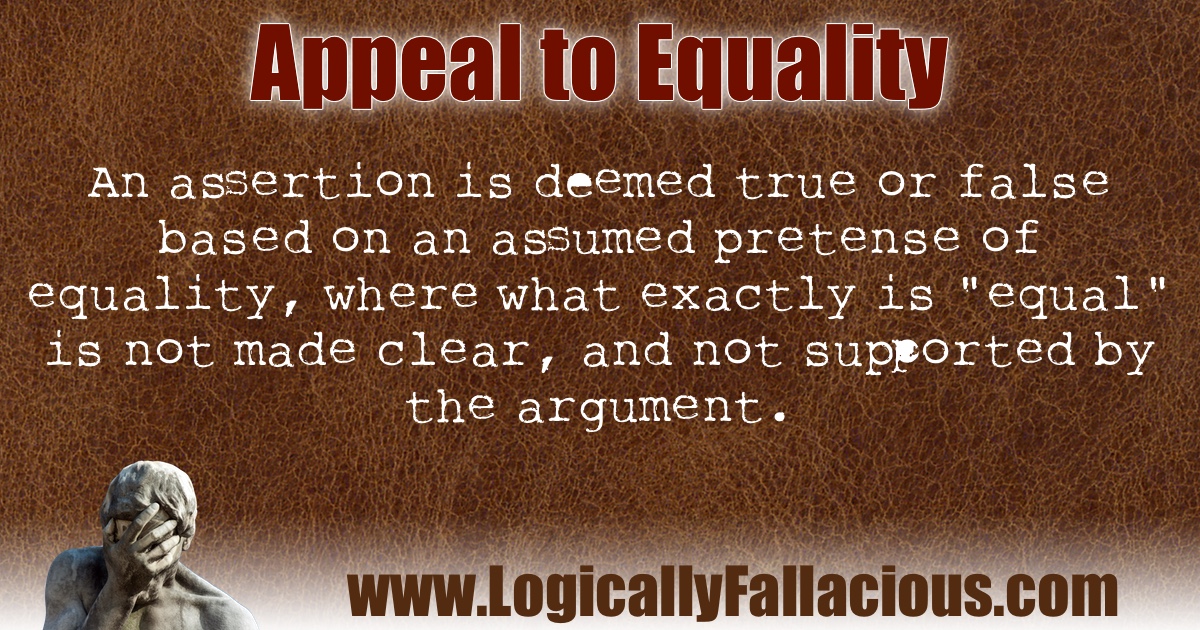(also known as: appeal to egalitarianism, appeal to equity)
Description: An assertion is deemed true or false based on an assumed pretense of equality, where what exactly is "equal" is not made clear, and not supported by the argument.
Logical Form:
A equals B (when A does not equal B)
Y applies to A or B.
Therefore, Y applies to both A and B.
Example #1:
If women get paid maternity leave, so should men.
Explanation: There are some good reasons that men should get some form of paid paternity leave, but they are not present in this argument. There is an unstated assumption that what benefits women get, for whatever reason, men should get the same. This is begging the question.
Example #2:
Gay marriage should be the law of the land because gays should have the same rights as heterosexuals.
Explanation: What do the "same rights" mean? Before gay marriage, men had the right to marry women, and women had the right to marry men. A man marrying a man is a different form of the "right of marriage" and needs to be argued as such. Again, there are many excellent arguments for gay marriage, but this isn't one of them.
Example #3:
Why should fetuses not have human rights, yet when they exit the womb as babies, they do have human rights? Clearly, fetuses deserve to have the same human rights as the rest of us.
Explanation: This argument implies that fetuses and babies outside the womb are equal, and ignores the fact that one is dependent on the resources of the mother's body to survive. Like with gay marriage, there are many excellent arguments for extending human rights to fetuses, but due to the appeal to equality, this isn't one of them.
Exception: There is quite a bit of subjectivity in the analysis of this fallacy. Is what is made equal, “clear?” Is this equality supported by the argument? Consider the following:
People of all races are equal. Human rights apply to everyone, so members of the HootchyCootchie Tribe on the Island of PiddlyWiddly have the right to marriage and family.
Unless we are talking about two or more of the same thing (i.e., A=A), then we really mean “equal in some way.” Although not explicitly stated, “equality” is referring to having human rights, which seems pretty clear. The right to marriage and family is a universal human right, so this is supported by the argument.
Tip: Don't get outraged when one questions what you believe should be "equal." Very often, either you really mean "similar" or you and your opponent have different concepts of what exactly should be equal.

References:
This a logical fallacy frequently used on the Internet. No academic sources could be found.
Questions about this fallacy? Ask our community!